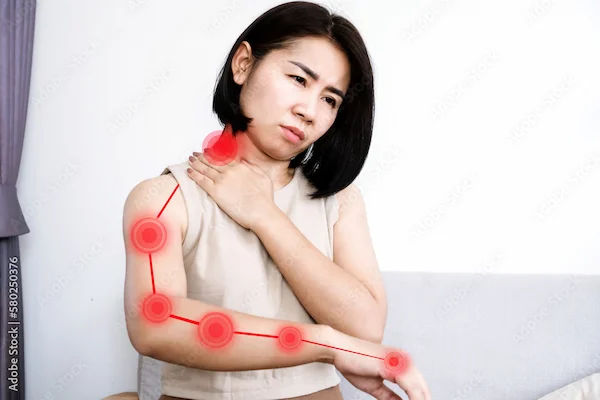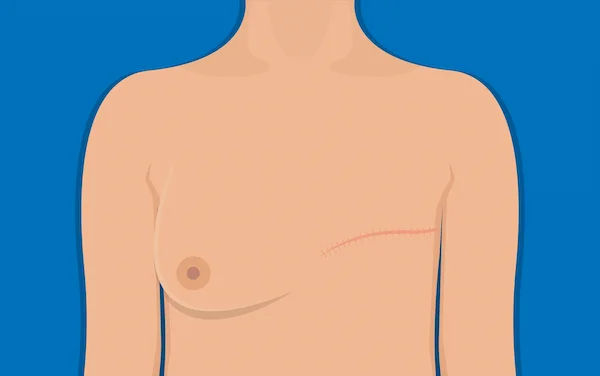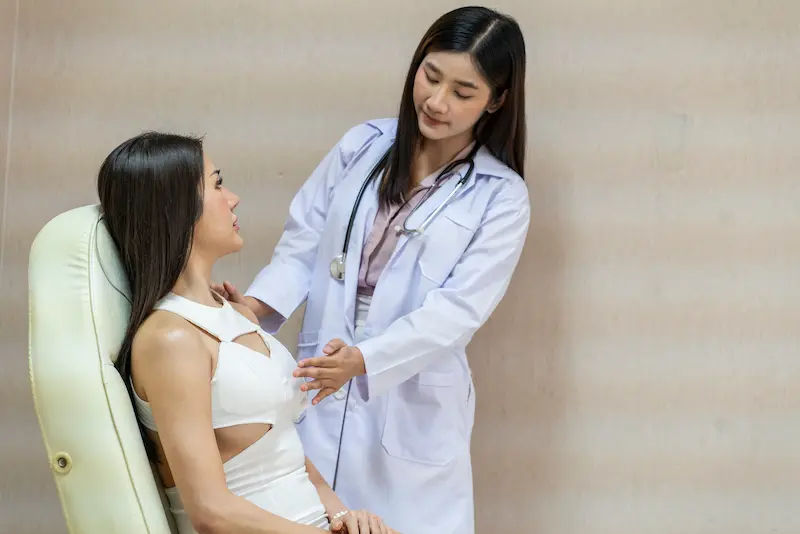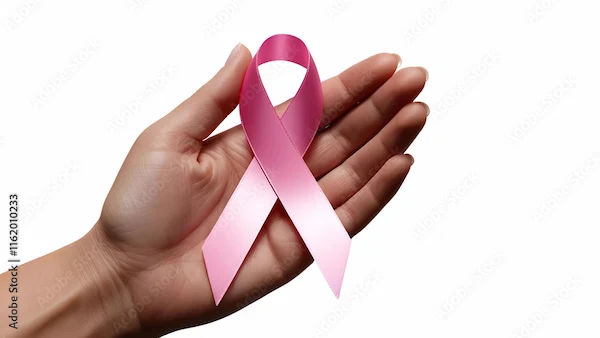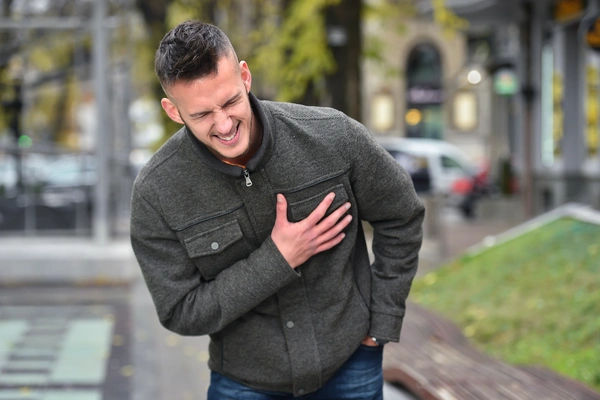How To Reduce Man Boobs?
Discover effective exercises, dietary changes, and treatment options to address excess chest fat and achieve a more masculine physique.

Written by Dr.Sonia Bhatt
Last updated on 13th Jan, 2026

Introduction
Man boobs, medically known as gynecomastia, can be a source of embarrassment and discomfort for many men. While it’s a common condition, it can affect self-confidence and overall well-being. The good news is that in many cases, it can be managed or even reversed with the right approach.
What Are Man Boobs?
Man boobs refer to the enlargement of breast tissue in males, leading to a more feminine chest appearance. This can happen due to:
Hormonal imbalances (higher estrogen or lower testosterone levels): An imbalance in the ratio of estrogen to testosterone can stimulate the growth of breast tissue in men.
Excess fat deposition (pseudogynecomastia): While not true gynecomastia, excess fat in the chest area can create the appearance of enlarged breasts.
Certain medications or health conditions: Various drugs and medical conditions can disrupt hormone levels or directly affect breast tissue, leading to gynecomastia.
Aging (hormonal changes with age): As men age, testosterone levels naturally decline, which can lead to a relative increase in estrogen and potentially cause gynecomastia.
Consult Top Hormone Specialists
Common Causes of Man Boobs
Hormonal Changes: Natural hormonal shifts during puberty or as men age can create an imbalance between estrogen and testosterone, potentially leading to temporary breast tissue growth.
Obesity: Excess body fat can increase the production of estrogen, which in turn can stimulate the development of enlarged breast tissue in men.
Medications: Certain prescription and over-the-counter drugs can have side effects that disrupt hormone levels and contribute to the development of gynecomastia.
Health Conditions: Various medical conditions, such as liver disease, thyroid disorders, and hormone-affecting tumors, can interfere with hormone balance and cause gynecomastia.
Alcohol & Drug Use: Excessive alcohol consumption and the use of anabolic steroids or other recreational drugs can negatively impact hormone levels and worsen gynecomastia.
How to Reduce Man Boobs Naturally
Reduce Overall Body Fat: Engage in regular cardio (running, cycling, swimming) to burn fat and incorporate strength training, including chest exercises, for muscle building.
Adopt a Balanced Diet: Limit processed foods and sugars, prioritize protein, include healthy fats (avocados, nuts, olive oil), and moderate alcohol intake to support hormone balance and fat loss.
Focus on Chest Strength Training: Build and tone chest muscles with exercises like push-ups (various types), dumbbell flys and presses, and cable crossovers to improve chest definition.
Promote Hormonal Balance: Ensure sufficient sleep (7-9 hours), manage stress through techniques like meditation, and moderate consumption of potential estrogen-boosting foods (excessive soy, processed meats).
Consider Medical Treatments (If Necessary): If lifestyle changes are ineffective, consult a doctor about options such as hormone therapy (for hormonal imbalances) or surgical procedures like liposuction or excision (for significant cases).
When to See a Doctor?
If you notice:
Pain or tenderness in the breast area: New or persistent pain or tenderness in your chest could indicate an underlying medical condition that warrants professional evaluation.
Sudden swelling without weight gain: Rapid, localized swelling in the chest area, unrelated to overall weight increase, should be checked by a doctor to determine the cause.
Nipple discharge: Any discharge from the nipples in men is unusual and requires medical attention to rule out potential underlying health concerns.
Conclusion
Reducing man boobs takes time and consistency. A combination of weight loss, strength training, and a healthy diet can make a big difference. If the problem persists, don’t hesitate to seek medical advice. For personalized guidance, you can consult an expert on Apollo 24|7 or schedule a hormone test to check for imbalances. Small changes today can lead to a more confident tomorrow!
Consult Top Hormone Specialists
Consult Top Hormone Specialists

Dr. E Prabhakar Sastry
General Physician/ Internal Medicine Specialist
40 Years • MD(Internal Medicine)
Manikonda Jagir
Apollo Clinic, Manikonda, Manikonda Jagir
(150+ Patients)
Dr. Kiran Kumar Pasam
Endocrinologist
12 Years • MBBS, MD(General Medicine), DM (Endocrinology)
Hyderabad
Dr Kiran Kumar Pasam, Hyderabad
(25+ Patients)
Aditya Singh
Endocrinologist
8 Years • MBBS
Bengaluru
Apollo One Electronic City, Bengaluru

Dr. Arunava Ghosh
General Physician/ Internal Medicine Specialist
10 Years • MBBS,MD(GENL.MED.),DM(ENDOCRINOLOGY)
Kolkata
VDC Clinic, Kolkata

Dr. Chaithanya R
Internal Medicine Specialist Diabetologist
16 Years • MBBS, MD Internal Medicine, Fellowship in Diabetes(UK), CCEBDM(PHFI)
Bangalore
Apollo Clinic Bellandur, Bangalore
(75+ Patients)
Consult Top Hormone Specialists

Dr. E Prabhakar Sastry
General Physician/ Internal Medicine Specialist
40 Years • MD(Internal Medicine)
Manikonda Jagir
Apollo Clinic, Manikonda, Manikonda Jagir
(150+ Patients)
Dr. Kiran Kumar Pasam
Endocrinologist
12 Years • MBBS, MD(General Medicine), DM (Endocrinology)
Hyderabad
Dr Kiran Kumar Pasam, Hyderabad
(25+ Patients)
Aditya Singh
Endocrinologist
8 Years • MBBS
Bengaluru
Apollo One Electronic City, Bengaluru

Dr. Arunava Ghosh
General Physician/ Internal Medicine Specialist
10 Years • MBBS,MD(GENL.MED.),DM(ENDOCRINOLOGY)
Kolkata
VDC Clinic, Kolkata

Dr. Chaithanya R
Internal Medicine Specialist Diabetologist
16 Years • MBBS, MD Internal Medicine, Fellowship in Diabetes(UK), CCEBDM(PHFI)
Bangalore
Apollo Clinic Bellandur, Bangalore
(75+ Patients)
